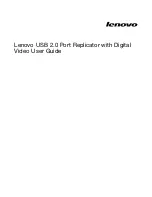
MENNEKES AM-TITE PLUG SERIES
WIRING INSTRUCTIONS
Figure 1
All installations must comply with applicable local code, National Electric Codes and/or Canadian Electrical Code.
1. Disassemble plug as shown in Figure 1 by unscrewing the rear housing (1) from the front housing (2), loosening set screw (3) and
unscrewing strain relief (4). It is not necessary to separate the insulator block (5) from the front housing. Do not disassemble the
insulator block.
2. Strip the cable jacket and individual conductors per Table A.
3. Slide strain relief (4) with adjustable cable clamps (6) and washer (7) over prepared cable.
4. Remove the "inner layers" from the mutli-cut grommet (8) until it slips over the power cable. Remove one layer at a time, by
pushing through to solid side and tearing off. See Figure 2.
5. Slide cable through threaded opening of rear housing (1).
Figure 2
NOTE
: PLUGS are to be used with Type G, W, S, SO, STO or equivalent
"extra hard usage" portable cable w/copper conductors, per Table B and to
National Electrical Code, Articles 400, 501-11 & 502-12 and/or Canadian
Electrical Code, Sections 4-010, 18-120, 18-172, 18-218 & 18-276.
Table B
Cable Diameter Range
Amperes
4W Cable Dia. Range (inch)
60
0.50
– 1.45 for S,SO, STO
.90-1.45 for G & W
Strip Length (inches)
Jacket
Conductor
Amperes
Rating
a
b
Terminal W ire
Range (AW G)
Extra Flex
60
2.68
0.87
#4-#6
Power Cable
(11) Cable Clamp Screw
(3) Set Screw
(7) Washer
(8) Multi-Cut Grommet
(10) Locking Tab
(9) Bayonet Ring
Strip Length Jacket
(5) Insulator Block
(2) Front Housing
(1) Rear Housing
Solid Side
(4) Strain Relief
(6) Adjustable
Cable Clamps
Power Cable
Table A Terminal Wire Range and Stripping Guide
Copper
Conductors
ONLY!
CAUTION
The conductor size of the cord must be within the range specified in
Table A.
Use cable with diameters within the specified range given in table above.
Failure to do so may result in overstressed wire terminations which could
cause the conductors to pull out of the terminals and cause serious/fatal
personal injury and/or equipment damage.




















